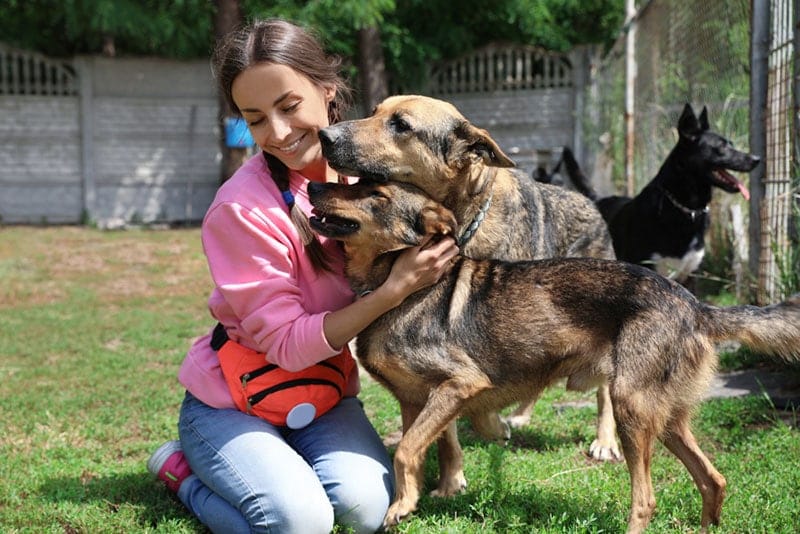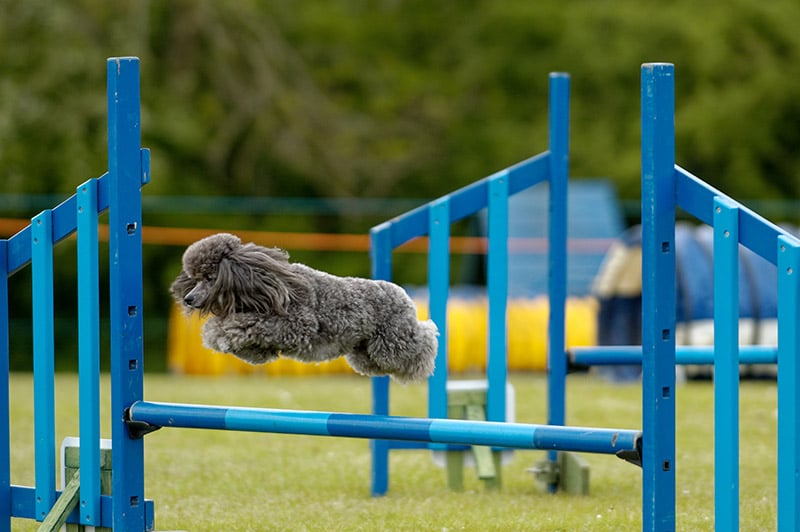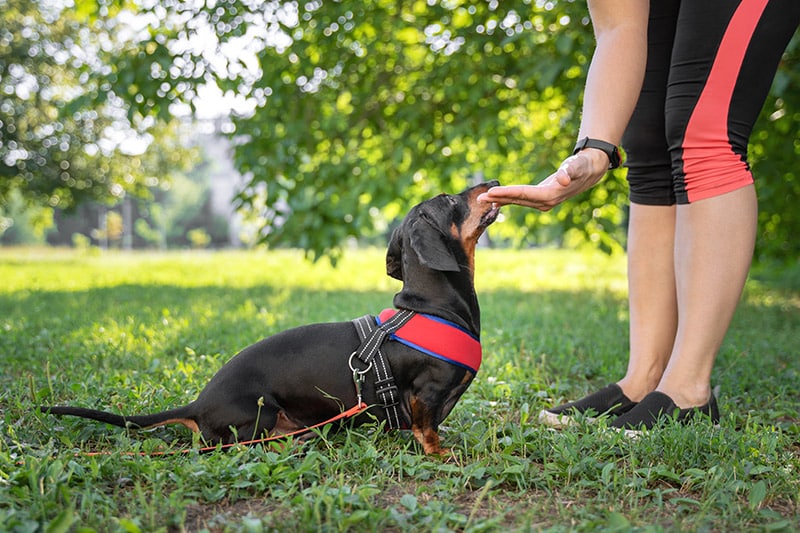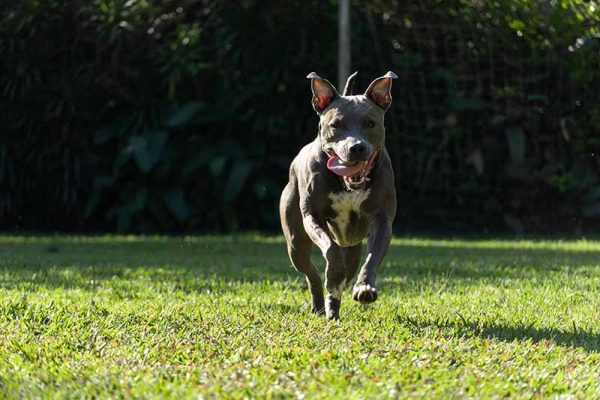It’s a good time to get started in the animal care business. According to the US Bureau of Labor Statistics, the animal trainer niche is expected to grow 16% by 2032.1 It’s riding on the tail of the humanization of the pet industry, where people want the best for their animals. After all, 95% consider their pets as family members, with over 65 million American households having at least one dog.2, 3
Experience and patience are the keys to success when learning how to start a dog training business. It also means careful planning to understand the financial and legal obligations it entails. However, if you love dogs, you may find your job doesn’t feel like work at all. Let’s do a deep dive into what you must know to succeed in this industry.

Before You Start
Dog training can be challenging, but it’s also rewarding. According to the ASPCA, behavioral issues are the number one reason people relinquish their pets.4 That gives your efforts a purpose and meaning that many professions lack. You can be part of the solution. Kudos for your choice of career path!
Pets are an emotional subject for people. That’s why it’s necessary to consider the legal side of the business. There are other matters to consider as well though, such as your business structure, insurance, and tax obligations. Liability comes into play with all these factors. However, don’t let these things keep you from pursuing your dream. Just make sure you understand what’s involved with a dog training business from day one.

Training Materials
Every business has its tools of the trade. We’ll discuss other expenses later, but bringing your equipment to training ensures you have the best products. It can help you educate your clients and perhaps earn some extra cash from affiliate sales. The other critical factor is your comfort and being familiar with the things you use.
- Training harnesses or headcollars
- Leashes
- Clickers
- Training aids
- Treat pouches

Step-by-Step Guide to Becoming a Dog Trainer
1. Learn Your Clientele by Volunteering at a Shelter or Rescue
We discussed the value of experience, and working with various dogs is an excellent confidence booster. It also helps you hone your skills and the other qualities necessary for this profession, such as compassion, patience, and physical stamina. Getting to know different animals can help you refine your ability to read canine body language and, thus, make you a better trainer.

2. Find a Qualified Mentor
Like many trade professions, dog training is one where many people learn on the job. Some things you can’t get from a textbook; you have to experience them. That’s where working with a qualified mentor can help. You may find this step one of the most challenging. This business often operates by word of mouth and networking. However, anyone wanting to grow their business may welcome an intern.
We suggest checking with the shelters or rescues with which you are volunteering. You can also ask your vet about trainers they recommend. Offering to work with little or no pay may get your foot in the door, but it is important to remember the importance of experience when you’re just getting started.
3. Work With Pets of Family and Friends
The chances are your dog is well-behaved or you wouldn’t be pursuing a job in this field. You can also ask your family and friends if you train their dogs for more experience. You can work one-on-one with pet owners of a familiar face during the lessons, and this is an excellent way to get candid feedback about your skills.

4. Get Professional Training
Whether you take an online course or an in-person class, we recommend professional training. These venues will provide valuable advice and tips that come from work in the field. They can also instill confidence in prospective clients about your skills and show your dedication to your career. You can use these opportunities as stepping stones to networking and growing your business.
5. Find a Niche
Dog training has become more sophisticated, opening up the industry for niches. You can focus on the basics or specialize in advanced methods for agility or sporting competitions. You probably have a vision about where you want your business to go. Fortunately, the ever-expanding market can make it possible. It’s an excellent way to put word-of-mouth marketing to your advantage.

6. Consider Certification
We recommend getting certified, whether it’s through the school from which you receive training or through associations such as the Association of Professional Dog Trainers (ADPT). It’s not required for work in this industry. But again, it’s a compelling selling point for prospective clients and an opportunity to network.
7. Determine Your Startup Costs
Being realistic about your costs and commitments is a vital step. Of course, funding is a hurdle you must cross. It includes expenses such as your training and certifications, but it also involves getting a business name, acquiring a business license, which many states and municipalities require. You must also buy your supplies. If you want to get a loan, you must also draft a business plan to sell it to a bank. It’s a lot to consider, so take your time on this step.

8. Research Your Legal Obligations
We mentioned a business license and what that may involve for your area, but you should also research options for drafting documents, such as a dog training agreement and waiver of liability. It’s vital to protect you, the dogs, and your clients. We strongly urge you to have a contract with every pet owner. We suggest researching law firms in your locale for documents applicable to your state.
9. Get Insurance for Your Business
We highly encourage getting insurance for your business. The contract and waiver will go a long way toward protecting you. However, unexpected things happen all the time. A dog you’re training may bite someone—or you. Or they may slip out of a collar and run off. Consider insurance a safety net to safeguard your business. It’s affordable and worth the investment if just for the peace of mind it will give you, but it also appeals to clients.

10. Set Up Your Business Structure
The US Small Business Administration is an excellent resource for helping you understand the framework of your company. A sole proprietorship is the default. It’s an easy option if you don’t have others working with you. The advantage is its simplicity. It’s also a decent choice for low-risk businesses. However, it doesn’t separate your personal and business liabilities.
A limited liability company (LLC) provides legal protection for your personal assets by keeping the business dealings separate. It’s more involved, but it’s a wise choice for businesses that have some risk, such as dog training. Animals are unpredictable, which explains the next item on our list of steps.
11. Focus on Your Target Audience and How to Market to Them
If you’ve decided to pursue a specific niche, your next step is to find those clients. It’s almost underheard of for a business not to have a website, even if it’s only a Facebook page. Remember that people often research companies before buying from them. Having a social media presence can help you connect with dog owners, and it’s a great place to post success stories and show off your professional skills.

12. Set Up a Separate Bank Account
If you opted for an LLC, this step is a no-brainer. Even if you didn’t, we recommend setting up a separate bank account for your business. It’ll make filing taxes infinitely easier. It’ll also give you a better handle on what it’s doing if you know what your bottom line really is. Payment services like Venmo and PayPal make invoicing and accounting a breeze, so figure out all the details regarding payments before you book your first client.

Final Thoughts
Given the industry’s earnings forecast, becoming a dog trainer is a worthwhile pursuit. You can be one of the lucky ones who gets to do what they love and make money doing it! However, it is a business like any other, which means planning before you snap on that first leash. Also, keeping good records will ensure you’re fulfilling your legal obligations with insurance and the right business structure for support. It’s a lot of work, but it’s definitely doable if you’re determined enough.
See also:
- 8 College Degrees for Dogs: Fun Canine Studies With a Pun
-
How to Become a Guide Dog Trainer: 5 Vet-Verified Steps & FAQ
Featured Image Credit: Masarik, Shutterstock


















